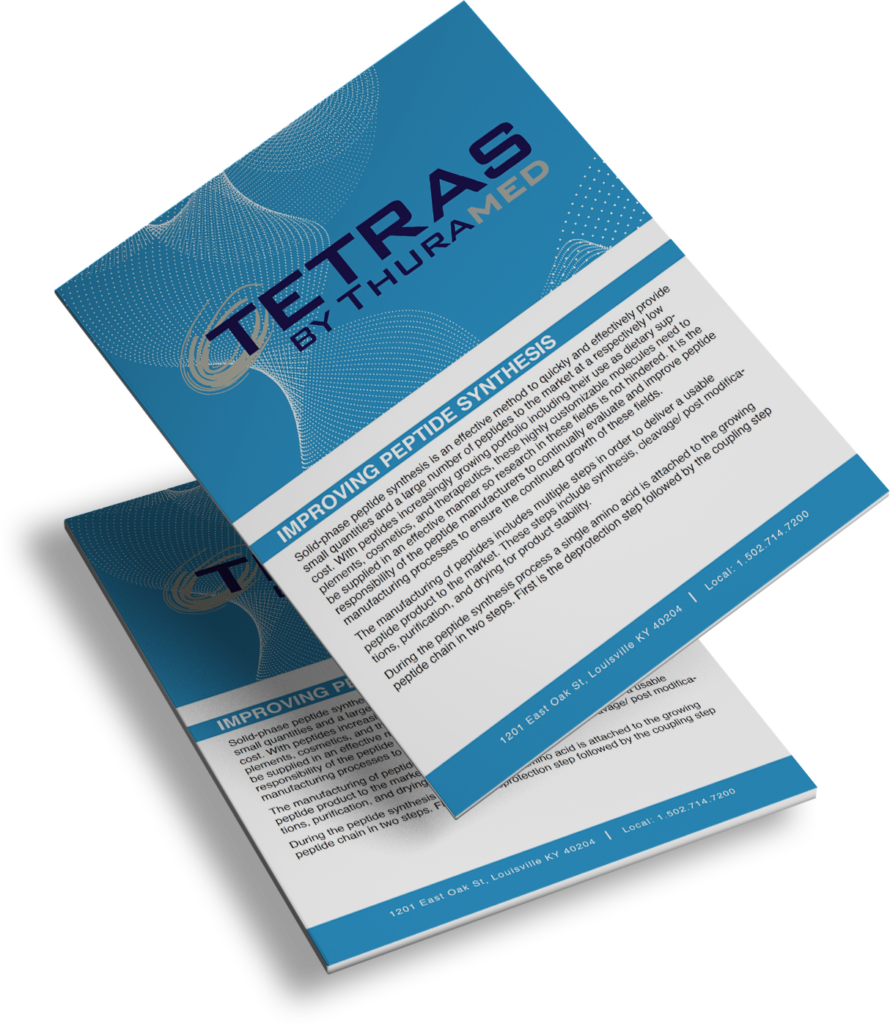
This is a snippet of the Improving Peptide Synthesis White Paper. To download the white paper in its entirety, fill out the form below.
Solid-phase peptide synthesis is an effective method to quickly and effectively provide small quantities and a large number of peptides to the market at a respectively low cost. With peptides increasingly growing portfolio including their use as dietary supplements, cosmetics, and therapeutics, these highly customizable molecules need to be supplied in an effective manner so research in these fields is not hindered. It is the responsibility of the peptide manufacturers to continually evaluate and improve peptide manufacturing processes to ensure the continued growth of these fields.
The manufacturing of peptides includes multiple steps in order to deliver a usable peptide product to the market. These steps include synthesis, cleavage/ post modifications, purification, and drying for product stability.
During the peptide synthesis process a single amino acid is attached to the growing peptide chain in two steps. First is the deprotection step followed by the coupling step with washing occurring in between. These steps are repeated until the desired number of amino acids have been attached to create the target peptide. The repetitive nature of the synthesis process naturally has led to the automation of Solid-phase peptide synthesis. There are numerous types of automated peptide synthesizers in the market today, ranging in combinations of scale, chemical delivery methods, reaction vessel volumes and available positions, and whether or not the reactor is an open or closed system.
Available synthesizers can accommodate either large, molar (mol), or smaller, micro molar (µmol), scale synthesis but it is highly recommended to determine the average scale of synthesis you require prior to selecting a synthesizer. Some synthesizers are better tailored to only one end of this spectrum, with a few including options to increase the range of supported synthesis scales. To determine your preferred synthesis scale, you can use the following formula…
To download the Improving Peptide Synthesis Whitepaper in its entirety,
fill out the form below.
1201 East Oak St
Louisville KY 40204
Local: 1.502.714.7200
jgoatley@occamdesign.com
Menu
© Occam Design, A Creosalus Company
